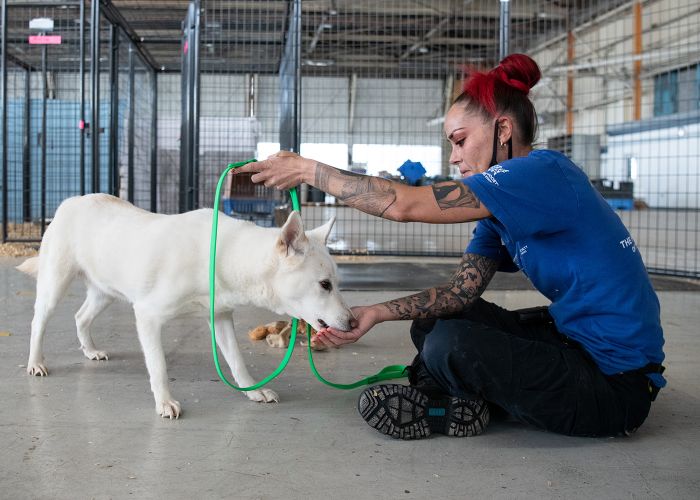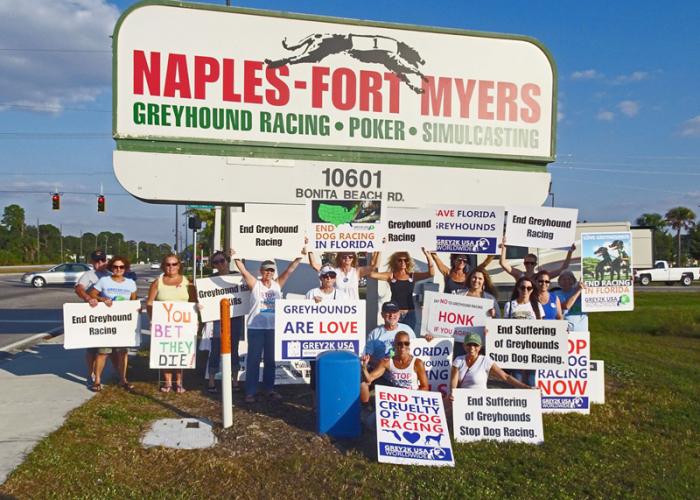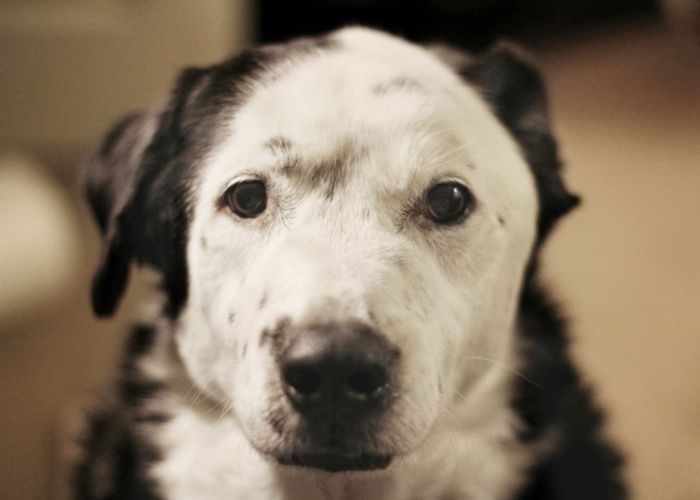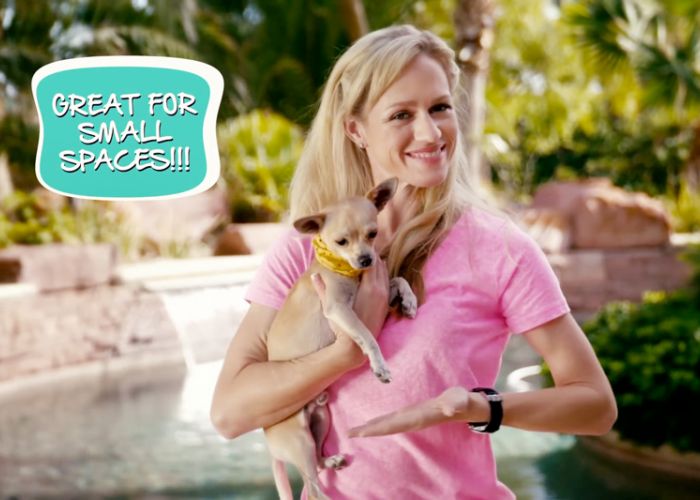Clinics in overdrive
Louisiana shelter puts vaccinations in top gear with drive-through clinics
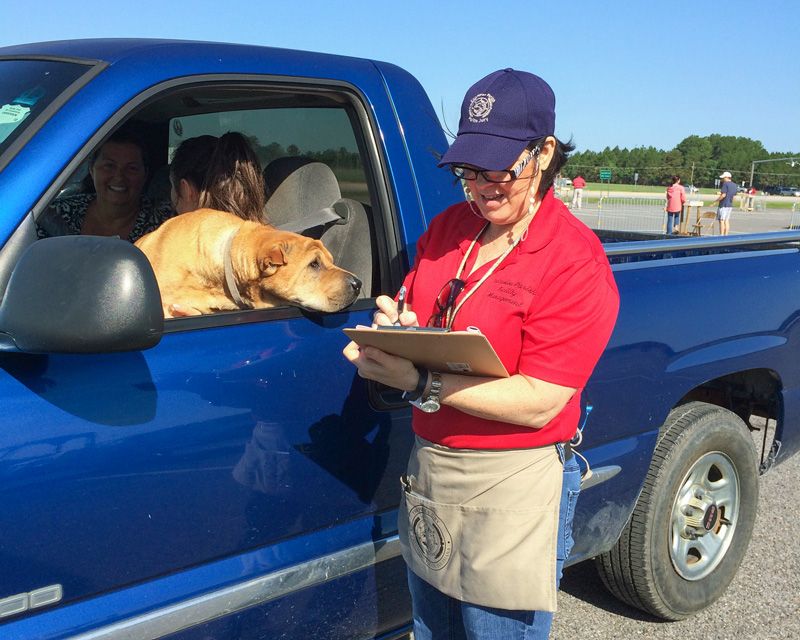
Here's the scene at a typical community rabies clinic: Pet owners lined up on a sidewalk, dogs barking and pulling on their leashes, cats petrified in their carriers. The animals get their vaccines—and the community gets a valuable public service that helps keep a virus at bay. But for many, the whole thing can feel chaotic, slow-moving and stressful.
It’s a model that’s common across the country, and one that Nathan Areno, director of the Calcasieu Parish Animal Services and Adoption Center in Lake Charles, Louisiana, knows well. He remembers when the parish used to host those cumbersome clinics.
“It was problematic on so many levels, with animals bumping into each other and long lead times,” Areno says.
So in 2010, Areno’s team changed the clinics to a drive-through format—a setup designed to reduce wait times and stress for animals and humans alike.
Here’s the new scene: Pet owners drive into a large parking lot, register and pay at drive-up booths, and then wheel over to one of several veterinary tents. Veterinarians administer vaccines and sometimes microchips to the pets in the vehicles. Traffic flows smoothly. At peak times, a car leaves the clinic every three seconds.
Areno says it’s taken a little tweaking over the years to get it just right—his team has adjusted the number of sign-in stations, payment collectors and veterinarians, for example—but they’ve landed on a winning formula. The parish served about 4,000 animals at just two clinics in 2018.
“It’s super efficient and super awesome,” says Nick Lincoln, who started bringing his dogs Bella and Pax to the clinic in 2015. “We’ve gone when it’s cold and windy and you don’t want to get out of your car. It’s always smooth sailing.”
Rabies shots are $8 for animals who have been spayed or neutered and $10 for pets who are unaltered. Microchipping is also available for $12.
Local veterinarians are on hand not only to give vaccines and microchips, Areno says, but also to build relationships with pet owners.
“Rabies shots are great, but they’re just one shot. You need more vaccinations and other kinds of care to promote animal health,” Areno says. The clinics allow veterinarians “to break down walls and build relationships with people that lead to better animal health.”
Dennis Perkins is one of the veterinarians who make the clinics possible. The first rabies clinic he ever staffed was back in 1980, also in Louisiana—but it didn’t go well: “There were people standing in line, dogs getting in fights. … I was not very pleased.”
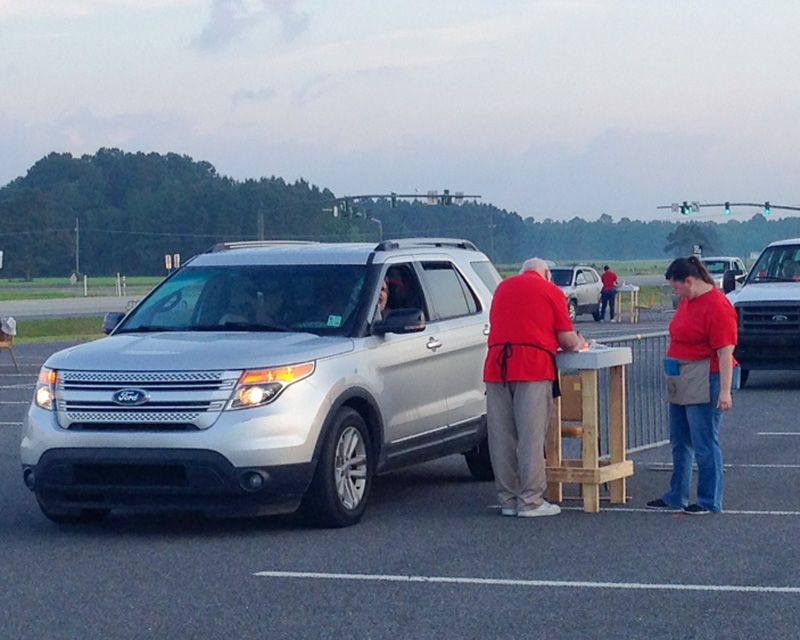
But when Perkins’ former colleague, veterinarian Jamie Houston, was hired to work at Calcasieu Parish Animal Services and called to recruit him for the drive-through, she assured him that this clinic would be different.
“I was really blown away at my first rabies drive by how well organized the event was,” Perkins says. “It’s changed my attitude toward rabies drives.”
He admits he was a little skeptical of the drive-through format at first, especially for cats. “The first one I saw, I thought, ‘How is this going to go? Cats don’t normally like to ride in cars to begin with.’ Well, I don’t know if I’ve been lucky or what, but it’s been so smooth to just reach in and undo the door to the carrier, reach in and vaccinate them. It’s been amazingly smooth. Smoother than what happens in a practice facility.”
Another surprise for Perkins: The sheer number of pets who get vaccinated. “I’ve seen ... people drive up in a van and they’ve got 15 animals. You’d think it would be utter chaos, but it gets done. It seems to just really flow.”
It’s not just the drive-through format that makes the clinics successful, he says. He credits the animal services staff leadership, the sites they select—large parking lots that have room for five parallel lanes of traffic—and the cadre of volunteers and staff who pitch in.
There are officials from animal control, police officers to direct traffic, and volunteers from the local community and parish government who staff the booths, prep the vaccines and zoom around on golf carts offering snacks and drinks.
Getting all those people involved with animal services is another benefit of the clinic, Areno says. “It builds advocates for animals, and adoptions come out of that.”
All told, Perkins says, it’s a positive experience for everyone involved. “Something that’s always really struck me at these drives,” he says, “is how very appreciative so many of the pet owners are for us being there. There are so many of them that say, ‘Thank you. We really appreciate you coming out here today.’”


